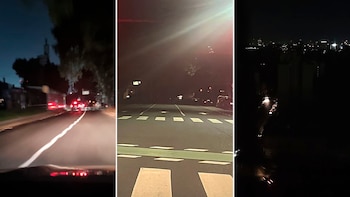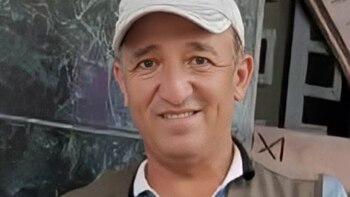The candidates seeking the presidency of the Fédération Internationale de Football Association (FIFA) should sign up to a set of pledges to prevent human rights abuses and corruption linked to the World Cup and other FIFA events, said a group of leading non-governmental organisations (NGOs) ahead of a debate in the European Parliament featuring three of the five contenders on Wednesday (27 January).
Amnesty International, Football Supporters Europe, Human Rights Watch, Terre des Hommes, and Transparency International Germany have asked the candidates to commit - if elected president - to taking six clear steps that will put FIFA on the road to ensuring its events do not cause or contribute to human rights abuses and corruption. The FIFA presidential election takes place on 26 February.
"FIFA needs fundamental changes and these must be monitored independently in order to ensure effectiveness and restore trust," said Kerry Moscoguiri, campaigns director at Amnesty International UK. "A new president should mean a new start for FIFA and whoever wins needs to commit to wholesale reform, beginning with these six steps. Otherwise, the world’s most prestigious celebration of the most popular sport on the planet may well continue to be overshadowed by corruption and abuse."
In a letter to the candidates, the NGOs ask them to pledge to take tangible steps within their first 100 days in office to that effective measures to prevent human rights and anti-corruption, and to adequately address any abuses that do occur in spite of those efforts, are included at every stage of hosting an event, from initial bids through to the event itself and, in some cases, its legacy.
In particular, FIFA’s next President should develop effective mechanisms that will allow FIFA to identify and mitigate the risk of human rights and labour rights abuses linked to its events, increase transparency and accountability, promote gender equality and engage in meaningful consultation with organisations, such as trade unions and community groups, likely to be affected by their events.
On the World Cups in Russia in 2018 and Qatar in 2022, the new president should start a process of monitoring progress the events’ human rights impacts, and publicly report on both the prevalence of significant human rights problems and the effectiveness of any steps those countries take to address them. The candidates have been asked to respond to the NGOs by Friday, 12 February.
"FIFA can and should mitigate risks and enhance opportunities of events on children, both direct and indirect. Strong leadership is needed for the right kind of decisions." Said Ignacio Packer, Secretary General of Terre des Hommes. "The election has to come up with an especially courageous, skillful and gifted moral leader to seize the opportunity to bring human rights protections to world football."
20 Years at #1: Your best source of news about the Olympics is www.aroundtherings.com, for subscribers only
Últimas Noticias
Sinner-Alcaraz, the duel that came to succeed the three phenomenons
Beyond the final result, Roland Garros left the feeling that the Italian and the Spaniard will shape the great duel that came to help us through the duel for the end of the Federer-Nadal-Djokovic era.
Table tennis: Brazil’s Bruna Costa Alexandre will be Olympic and Paralympic in Paris 2024
She is the third in her sport and the seventh athlete to achieve it in the same edition; in Santiago 2023 she was the first athlete with disabilities to compete at the Pan American level and won a medal.

Rugby 7s: the best player of 2023 would only play the medal match in Paris
Argentinian Rodrigo Isgró received a five-game suspension for an indiscipline in the circuit’s decisive clash that would exclude him until the final or the bronze match; the Federation will seek to make the appeal successful.

Rhonex Kipruto, owner of the world record for the 10000 meters on the road, was suspended for six years
The Kenyan received the maximum sanction for irregularities in his biological passport and the Court considered that he was part of a system of “deliberate and sophisticated doping” to improve his performance. He will lose his record and the bronze medal at the Doha World Cup.

Katie Ledecky spoke about doping Chinese swimmers: “It’s difficult to go to Paris knowing that we’re going to compete with some of these athletes”
The American, a seven-time Olympic champion, referred to the case of the 23 positive controls before the Tokyo Games that were announced a few weeks ago and shook the swimming world. “I think our faith in some of the systems is at an all-time low,” he said.




